Humanitarian Efforts in Sudan: Addressing Urgent Needs
“A Water Legacy Since 1983 Comes Back to Life – The Public Well in Derbat”
Sudan Sawa Sawa – July 1, 2025
In what has been described as a historic step, comprehensive maintenance work has recently begun on the public well in Derbat, located east of Jebel Marra. The well was originally established in 1983 during the era of the Darfur Regional Authority.
A Well Returns to Life After 15 Years of Neglect:
This well is considered one of the most important service facilities ever built in the Derbat area, within the Dira constituency. For decades, it served as a primary source of water, especially during dry and summer seasons, providing for thousands of residents in the area and neighboring neighborhoods and villages such as: Azaldeen, Al-Wasata, Tayba, Dabinira, Taringa, in addition to Alwa and the Derbat Market.
According to local residents and eyewitnesses interviewed by Sudan Sawa Sawa, the well operated efficiently and without any major issues from its inception until 2010. However, political and security unrest following the entry of government forces into Derbat led to the displacement of the population and the destruction of infrastructure — including the well, which was left completely neglected during the conflict that lasted over 14 years.
Volunteer Maintenance Supported by the Local Community:
After government forces withdrew from the area in 2023, local reconstruction efforts began to restore what had been destroyed. At the top of the community’s priorities was the rehabilitation of the public well. According to the initiative’s coordinators, the ongoing maintenance work is being carried out voluntarily by residents of the area, with contributions from local communities and strong moral support from community leaders and civil society actors.
Residents confirm that reactivating the well will have a direct impact on improving water security in the area, encouraging the return of displaced people, and helping stabilize life in Derbat and surrounding villages.
Calls for Technical and Institutional Support:
Despite the significance of this step, those overseeing the maintenance stress the urgent need for intervention by specialized water organizations and local authorities to provide technical and financial support, and to ensure sustainable upkeep of the well. They have also called for this experience to be documented as part of the public service history of Darfur — a testament to the resilience of local communities in the face of years of war and marginalization.
The public well maintenance project in Derbat stands as a model of community capacity to restore life after years of displacement and neglect. It underscores the importance of protecting vital infrastructure during times of conflict and serves as evidence that the restoration of basic services is a critical first step toward peace and development in post-conflict areas.
“Final Examinations Begin in Tawila Locality Despite the conflict and Humanitarian Challenges”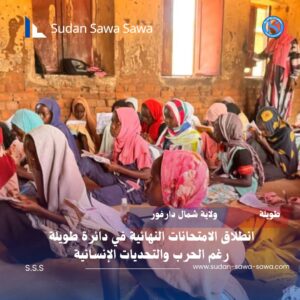
Sudan Sawa Sawa – June 17, 2025
Today, final examinations for the 2024–2025 academic year for both primary and intermediate education levels began in Tawila, North Darfur, an area controlled by the Sudan Liberation Army led by the professor Abdel Waid Mohamed Ahmed Al Nour. This comes despite the harsh humanitarian conditions resulting from the armed conflict in the country.
And according to the media of civil authority in Tawila, hundreds of students headed to examination centers amidst dire situations, particularly for displaced persons residing in shelters that lack basic essential services.
The civil authority in Tawila expressed to “Sudan Sawa Sawa” that this step reaffirms their commitment to continuing the educational process, despite the significant challenges facing the sector, including the closure of several schools in conflict areas and a shortage of resources and facilities. 
On the other hand, several teachers and parents expressed their appreciation for the efforts made by the civil authority to ensure that education does not come to a halt, thereby protecting students’ futures irrespective of the exceptional circumstances.
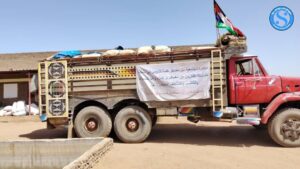 The camera of (Sudan Sawa Sawa) captures the humanitarian convoy organized by the civil authority in the Nirtiti area. This convoy is heading to the Tawila Locality, carrying essential supplies and clothing for displaced individuals affected by the conflicts in El Fasher, Abushok, and the surrounding regions.
The camera of (Sudan Sawa Sawa) captures the humanitarian convoy organized by the civil authority in the Nirtiti area. This convoy is heading to the Tawila Locality, carrying essential supplies and clothing for displaced individuals affected by the conflicts in El Fasher, Abushok, and the surrounding regions.
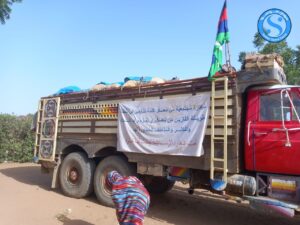 The “Sudan Sawa Sawa” camera captures the moments of the arrival of a relief convoy that set off from the Kalma camp for displaced persons to the Tawila Locality, where the displaced individuals who fled from the Zamzam and Abushok camps, as well as the city of El Fasher and nearby regions, are residing.
The “Sudan Sawa Sawa” camera captures the moments of the arrival of a relief convoy that set off from the Kalma camp for displaced persons to the Tawila Locality, where the displaced individuals who fled from the Zamzam and Abushok camps, as well as the city of El Fasher and nearby regions, are residing.
“Emergency Room in Zalingei Targets 400 Families for Food Basket Project”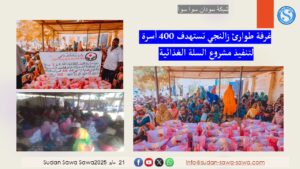
Sudan Sawa Sawa, May 21, 2025
The emergency room at the Hamidiya camp for displaced persons in Zalingei, Central Darfur, is implementing a food basket project for children under the age of five. This initiative is part of an emergency response supported by the Zalingei Emergency Rooms Council. A total of 400 families have been targeted between May 18 and May 21, 2025.
“Humanitarian Appeal from the Emergency Room in Tawila to Save Displaced Persons”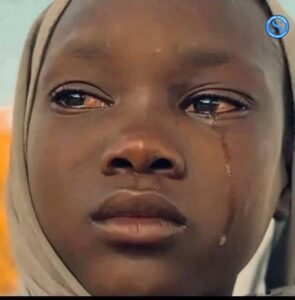
Tawila: Sudan Sawa Sawa, April 14, 2025
We urge you to contribute to supporting the displaced individuals and those stranded on the roads who are facing difficult conditions and need your urgent assistance.
– Water
– Food
– Shelter supplies
You can donate via account number: 3095181 in the name of Abdulhamid Haroun Mohammed Mansour
Notification number: +249907512224
Be a help to the displaced persons and participate in their relief efforts!
“Official Spokesperson for the General Coordination of Displaced Persons and Refugees Calls for Activation of International Decisions to Protect Civilians in Sudan”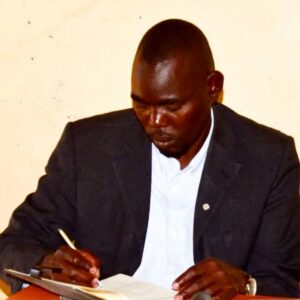
Sudan: Sudan Sawa Sawa, January 30, 2025
The official spokesperson for the General Coordination of Displaced Persons and Refugees, Adam Rajal, stated in an official announcement on Facebook that the bloody machinery of war continues to claim the lives of innocent people in Darfur. Rapid Support Forces have persistently bombarded the camps for displaced persons, residential areas, and infrastructure in the city of El Fasher. The latest brutal attack targeted the “Abu Shouk” camp for displaced persons on Wednesday, January 29, resulting in twelve fatalities and eleven others suffering serious injuries, along with widespread destruction of property and infrastructure. The camp was hit by more than eighty-eight shells in a crime that reflects an unprecedented level of brutality and moral decay.
What is happening in Darfur constitutes systematic war crimes and genocide committed in cold blood amid a shameful silence from the international and regional community and a complete disregard for all humanitarian calls to halt these massacres. The deliberate targeting of women, children, the sick, and hospitals highlights the nature of this senseless conflict, which adheres to no humanitarian, religious, or legal considerations, but is driven by extremist ideologies that know only the language of killing and destruction, shattering the present and future of Sudan.
We, at the General Coordination of Displaced Persons and Refugees, strongly condemn these heinous crimes and affirm that what is occurring on the ground is not merely a war; it is a frenzy of brutality and a diabolical act that adheres to no religious, moral, or legal standards. The ongoing targeting of displaced persons and innocent civilians represents a gross violation of all international norms and humanitarian charters, confirming that the parties involved in this conflict have lost any moral compass or responsibility toward their people.
We call on the warring parties for an immediate and unconditional halt to this bloody madness, as this war will only lead to further devastation and destruction, with only death and ruin emerging as victors. We also urge the international community, which has long confined itself to political rhetoric and troubling silence, to assume its moral and legal responsibilities and to take urgent and serious action to activate international decisions regarding the protection of civilians in Sudan. We call for pressure on all parties to cease hostilities and engage in genuine national dialogue that leads to fundamental and comprehensive change, achieving a just and lasting peace and ending the dark chapters that the Sudanese community is enduring.
“UN Concern Over Suspension of U.S. Foreign Aid”
Sudan Sawa Sawa, January 28, 2025
The Secretary-General of the United Nations has expressed concern over the announcement by the United States to suspend foreign aid. He urged for the consideration of additional exemptions to ensure the continuation of vital developmental and humanitarian activities for the world’s most vulnerable communities that rely on this support for their survival and livelihoods.
In a statement attributed to his spokesperson, Secretary-General António Guterres expressed his eagerness to engage with the new U.S. administration regarding the provision of much-needed developmental support for people facing the toughest challenges in the developing world.
The UN statement emphasized, “The United States is one of the largest aid providers, and it is crucial that we work constructively to jointly shape a strategic path forward.”
“Hunger wavering Worsens Among Displaced Persons”
Twaila – Sudan Sawa Sawa, January 20, 2025
A correspondent from “Sudan Sawa Sawa” highlighted the harsh conditions faced by displaced persons in the Argo camp in southern Twaila, located about 15 minutes away. These displaced individuals are under severe pressure due to a critical shortage of food, which exacerbates their daily suffering. Numerous stories of pain and hardship experienced by the camp’s residents have been documented.
On another note, the Emergency Room at Argo camp has completed its support for 80 families, with assistance from the Darfur Emergency Coordination Council.
Sudan Sawa Sawa – November 20, 2024

The sixth consecutive day

Introduction
Sudan faces significant humanitarian challenges due to ongoing conflicts, economic instability, and natural disasters. These crises have left millions in urgent need of assistance, with food insecurity, displacement, and limited access to healthcare being the most pressing issues. Humanitarian organizations play a crucial role in alleviating these challenges, working tirelessly to deliver aid and promote sustainable solutions.
Food Security and Nutrition
One of the most critical issues in Sudan is food insecurity, which affects millions of people annually. Prolonged conflicts and climatic shocks, such as droughts and floods, have disrupted agricultural production and food supply chains. Humanitarian efforts focus on distributing emergency food supplies, providing nutritional support for vulnerable groups, and implementing agricultural programs to enhance local food production.
These initiatives are essential for combating malnutrition, particularly among children, who are disproportionately affected by food shortages. Organizations like the World Food Programme (WFP) collaborate with local authorities to ensure equitable distribution and long-term food security solutions.
Support for Displaced Populations
Sudan is home to one of the largest internally displaced populations in the world. Conflicts in regions like Darfur, South Kordofan, and Blue Nile have forced millions to flee their homes. Refugees often face dire conditions in overcrowded camps with limited access to basic services.
Humanitarian efforts aim to provide shelter, clean water, and sanitation facilities to displaced communities. Additionally, these initiatives include psychosocial support and livelihood programs to help displaced individuals rebuild their lives and integrate into host communities. Ensuring the safety and dignity of these populations remains a top priority.
Healthcare Access
Access to healthcare is a major challenge in Sudan, especially in rural and conflict-affected areas. Many health facilities are under-resourced or non-functional, leaving communities without essential medical services. Humanitarian organizations address this gap by deploying mobile clinics, providing essential medicines, and supporting local health systems.
These efforts also prioritize maternal and child health, with a focus on reducing preventable deaths caused by complications during childbirth, malnutrition, or infectious diseases. Immunization campaigns and health education programs further strengthen community resilience.
Education and Child Protection
Prolonged crises have severely impacted education in Sudan, with thousands of schools damaged or destroyed and many children unable to attend classes. Humanitarian organizations work to rehabilitate schools, provide learning materials, and train teachers to ensure children have access to quality education.
Child protection programs also play a vital role, addressing issues such as child labor, early marriage, and exploitation. These initiatives create safe spaces for children and advocate for policies that safeguard their rights and well-being.
Building Resilience for the Future
While addressing immediate needs, humanitarian efforts in Sudan also focus on building long-term resilience. Programs aimed at empowering local communities include vocational training, microfinance initiatives, and climate adaptation projects. By equipping communities with the tools and knowledge to overcome challenges, these efforts contribute to a more sustainable and self-reliant future for Sudan.
Conclusion
Humanitarian efforts in Sudan are a lifeline for millions affected by crises. From providing emergency aid to promoting sustainable development, these initiatives address urgent needs while laying the groundwork for long-term stability. However, ongoing challenges such as funding shortages, logistical constraints, and security risks highlight the need for continued international support.
In a nation striving to overcome adversity, the collective efforts of humanitarian organizations, local authorities, and global partners serve as a testament to the power of collaboration and compassion. By addressing Sudan’s humanitarian needs, the world can help pave the way for a brighter and more resilient future.
